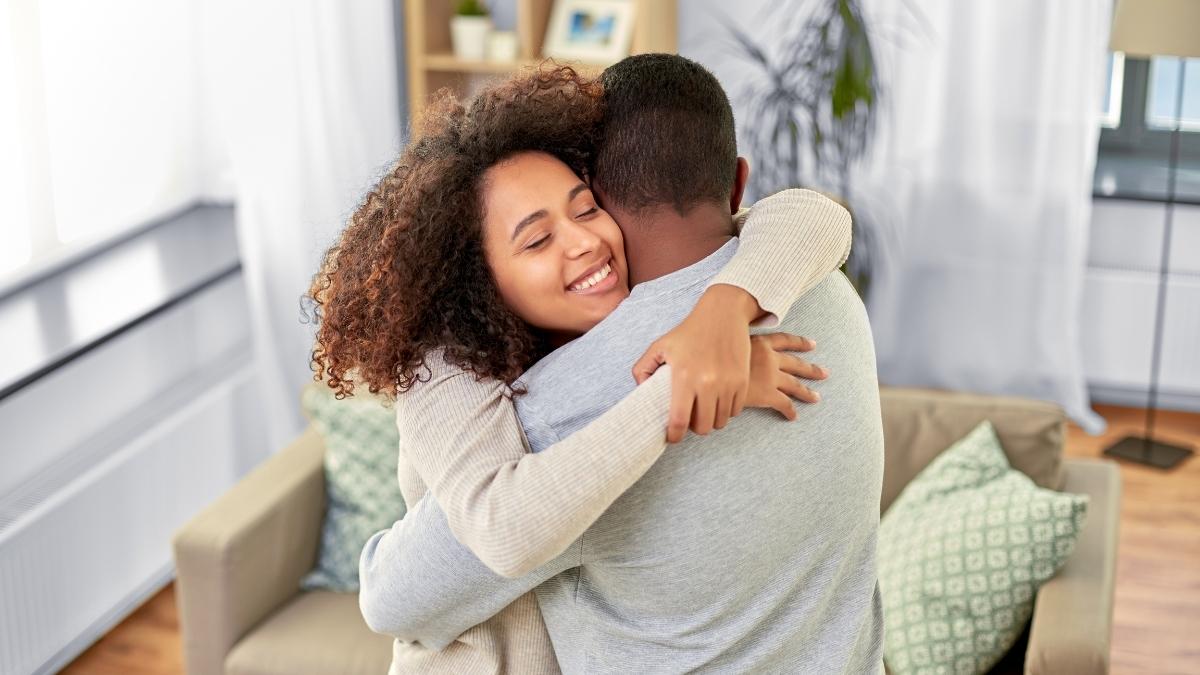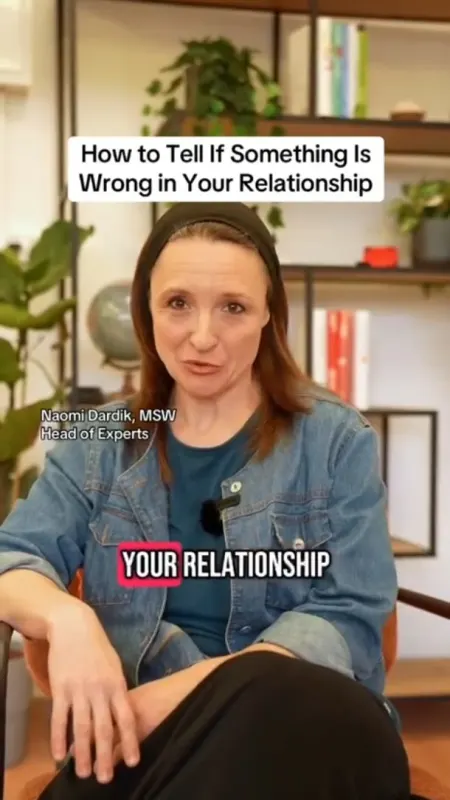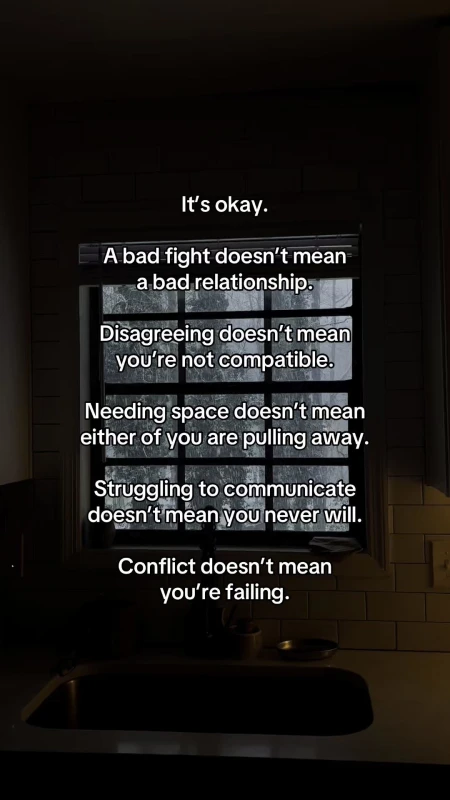ver had one of those conversations with your partner where you’re talking, but it feels like your words are just bouncing off a brick wall? Maybe your partner nods along, throws in a couple of “uhuh, yeah, definitely”s, but later, you realize they didn’t actually hear a word you said.
That’s the opposite of open communication.
Open communication in a relationship is more than just exchanging words - it’s about making sure those words land. It’s about talking honestly, respectfully, and clearly so that both partners feel heard and understood. It’s about creating a safe space where both of you can express your thoughts without fear of judgment or defensiveness.
It’s also not just about words. Body language, eye contact, tone of voice - these things speak just as loudly as what’s actually being said. If your arms are crossed and your tone is sharp, even the sweetest words might not be received well. When couples communicate openly, they don’t just avoid misunderstandings - they build deeper trust, handle conflicts better, and stay truly connected.
Why Is Open Communication Important for Healthy Relationships?
Having clear, honest, and consistent conversations makes a relationship feel secure. When you and your partner communicate well, you prevent misunderstandings, resolve conflicts faster, and build an emotional closeness that keeps your relationship strong. Here’s how:
1. Exchanging Information About Each Other’s Emotions and Desires
You can’t read each other’s minds (no matter how much you’d like your partner to be able to magically know exactly what it is you need at any given moment). Open communication means actually talking about what you’re feeling and what you need. It prevents assumptions from turning into unnecessary arguments and strengthens your emotional intimacy.
2. Share Personal Needs and Emotions Freely
Nobody likes to feel like they’re walking on eggshells. A healthy relationship is one where both partners feel safe sharing their thoughts, concerns, and emotions without worrying about criticism or dismissal. If you can talk openly without fear, you’ll naturally feel closer and more valued.
3. Handle Disagreements Effectively
Conflict is inevitable, but bad communication makes it worse. Ever had a fight that spiraled out of control over something small? That’s usually because feelings weren’t fully expressed or understood. Open communication helps prevent fights from escalating by allowing both partners to share their perspectives calmly and work toward a real solution.
4. Strengthen Trust and Emotional Closeness
Trust isn’t just about keeping promises - it’s about knowing you can be honest without being judged or shut down. The more you practice open communication, the stronger your emotional safety net becomes, making it easier to confide in each other and stay deeply connected.
5. Keep the Dialogue Open and Being Honest
Honest communication isn’t just about deep conversations - it’s also about the small, everyday check-ins. Staying on the same page about what’s going on in each other’s lives helps keep the emotional connection strong and prevents miscommunication from creeping in.
6. Communicate Assertively Without Being Aggressive
There’s a fine line between assertive and aggressive communication. Speaking up for yourself and expressing your needs is important, but how you say it matters. Open communication means expressing yourself clearly but respectfully, so you get your point across without creating unnecessary conflict.
Overcoming Common Communication Barriers
Even the best relationships hit communication roadblocks. Maybe you assume your partner knows how you feel (spoiler: they don’t), or maybe you avoid tough conversations because you don’t want to start an argument. These barriers can slowly create emotional distance if left unchecked.
Here’s how to tackle the most common communication struggles:
- Making assumptions instead of asking questions: Instead of assuming what your partner is thinking, just ask. It’s way more effective. A simple “what do you mean by that?” goes a long way.
- Letting things build up: Small annoyances can turn into major fights if they’re never addressed. Speak up before resentment has a chance to grow.
- Being distracted during conversations: Put the phone down, make eye contact, and actually listen. Being present makes all the difference.
- Not making time for real conversations: Life is busy, but relationships need regular check-ins. Even 10 minutes a day of undistracted conversation can help keep your connection strong.
When you recognize these challenges and take steps to overcome them, communication becomes smoother, easier, and more meaningful.
Practical Tips on How to Open Communication in a Relationship With Your Partner
Good communication isn’t something you either have or don’t have—it’s a skill you can improve with practice. Here’s how to make it easier:
1. Adopt and Practice Healthy Communication Habits
If you’ve ever walked away from a conversation thinking “that did not go well”, it might be time to tweak your approach. Notice how you communicate. Are you defensive? Do you interrupt? Making small changes—like speaking with intention and really listening—can completely shift the way you connect with your partner.
2. Speak Calmly to Encourage Better Understanding
Ever notice how yelling never really solves anything? The way you deliver your message matters. A calm, steady tone invites your partner to actually listen instead of getting defensive. The softer the delivery, the better the reception.
3. Encourage a Comfortable and Judgment-Free Conversation
If you want open communication, create an environment where your partner feels safe to share. That means no eye rolls, no dismissive comments, and no "I told you so" moments. Encouraging honesty without fear of judgment makes conversations feel more open and productive.
4. Show Genuine Interest While Listening
Listening isn’t just about hearing words - it’s about making your partner feel understood. Put down your phone, nod along, and ask thoughtful follow-up questions. Active listening builds trust and shows your partner you genuinely care.
5. Value Your Partner’s Opinions, Even If They Differ From Yours
Disagreeing doesn’t mean disrespecting. If your partner has a different opinion, it’s okay—what matters is how you handle it. Listening with an open mind rather than trying to "win" the conversation helps keep your relationship strong and balanced.
When to See an Expert
If you’re having the same fights over and over, or if conversations always seem to hit a dead end, it might be time to bring in an expert. Seeking professional guidance doesn’t mean your relationship is failing—it means you’re committed to making it better. A relationship coach or counselor can offer tools and strategies to help you communicate more effectively and reconnect in meaningful ways.
If you’re looking for extra support, visit the Relationship Experts Guidance page for tailored advice.
Building Stronger Bonds Through Open and Honest Communication in a Relationship
At the end of the day, open communication in a relationship might be the thing that makes or breaks it. When you and your partner are open, honest, and genuinely engaged with each other, everything else falls into place more easily. Difficult conversations and disagreements are inevitable, but knowing how to navigate them with respect, patience, and understanding is what will make your relationship thrive.
The more effort you put into keeping the dialogue open, the stronger and more fulfilling your relationship will be.
Want to improve communication in your relationship? Explore how OurRitual can help.























